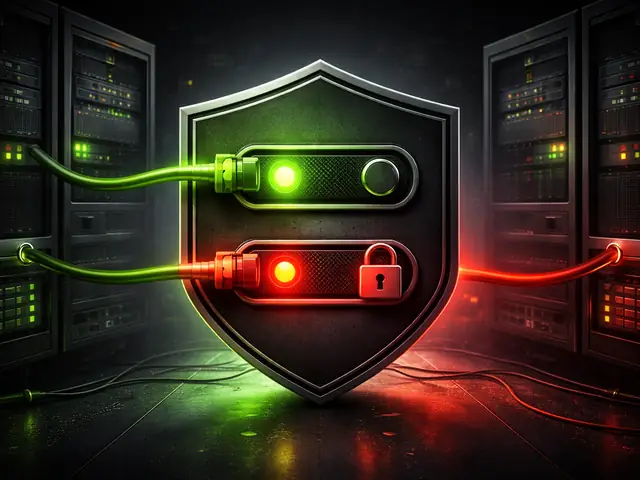
In case you periodically need to do automatic synchronization of files and folders, including on remote servers, the most indispensable tool for this is rsync. ...
3v-Hosting Blog
8 min read
Hosting your own game server can elevate your multiplayer experience to an entirely new level - better performance, more control, mods, and a private environment for your friends or community. Whether you're running a survival world in Minecraft, setting up competitive matches in CS:GO, or exploring Viking lands in Valheim, a Virtual Private Server (VPS) offers an ideal balance of affordability, customization, and power.
In this guide, we’ll explore how to choose the best VPS for your gaming server needs. We’ll cover technical requirements, performance considerations, geographical location, setup tips, and compare various options - so you can make an informed decision.
A VPS acts like your own private server space on a larger physical machine. Unlike shared game hosting, a VPS gives you:
Full root access - Install any software or mods.
Guaranteed resources - CPU, RAM, and disk are allocated just for you.
Freedom to host multiple games - Run more than one server or service.
Better performance and lower latency than shared or P2P hosting.
Affordable scaling - Add resources when needed, without downtime.
For developers and serious gamers alike, a VPS provides the flexibility needed for a seamless multiplayer experience.
Not all games are equal in terms of server load. Here’s what to keep in mind:
RAM: At least 2 GB for basic servers; 4+ GB for modded (e.g., Forge, Spigot, FTB).
CPU: High single-core performance is crucial. Minecraft is mostly single-threaded.
Disk: SSD is essential. NVMe preferred for faster chunk loading.
Network: Low-latency, high bandwidth, DDoS protection recommended.
RAM: 2 GB is enough for a few players, 4 GB for competitive 10+ slot servers.
CPU: Multi-threaded support, but still benefits from fast single-core performance.
Disk: Less demanding than Minecraft; SSD is recommended.
Network: Fast connection with low jitter is vital for fair play.
RAM: 2-4 GB for a stable co-op world.
CPU: Dual-core minimum, quad-core preferred.
Disk: SSD required for loading structures and terrain.
Network: Up to 10 players; requires stable outbound connection.
To run game servers reliably, your VPS should include:
| Spec | Minimum | Recommended |
|---|---|---|
| CPU | 1 vCore (2 GHz) | 2-4 vCores (3+ GHz, modern CPU) |
| RAM | 2 GB | 4-8 GB |
| Storage | 20 GB SSD | 40+ GB NVMe SSD |
| Bandwidth | 1 TB/month | Unlimited or high monthly cap |
| Network | 1 Gbps | Low-latency route to players |
| DDoS | Optional | Recommended for public servers |
Choose VPS plans with dedicated resources, not shared CPU/RAM that gets throttled during peak load.
Ping kills gameplay. Choose a VPS geographically close to your players.
If most of your players are in Europe, pick a data center in Germany, Netherlands, or Ukraine.
For North American players, choose East Coast or Central regions.
For mixed global audiences, consider two VPS servers with region-specific routing.
Some hosts offer Anycast IPs or Global Load Balancers, but for most indie setups, picking the right region manually is enough.
Setting up a game server on a VPS isn’t as hard as it sounds:
Choose your OS - Ubuntu 22.04 LTS or Debian 12 are common for stability.
Install dependencies - Java (for Minecraft), SteamCMD (for CS:GO, Valheim).
Download and configure the game server - via official tools or community launchers.
Open necessary ports - e.g., 25565 for Minecraft, 27015 for CS:GO.
Use tmux or screen - to keep servers running in the background.
Configure firewall (ufw) and DDoS protection.
Automate backups and restarts - using cron jobs or monitoring tools.
Many VPS providers (like 3v-Hosting) offer pre-installed templates that simplify this process.
When selecting a VPS host for your game server, consider:
| Feature | What to Look For |
|---|---|
| CPU performance | Modern processors (AMD EPYC, Intel Xeon) with high clocks |
| SSD / NVMe | Faster loading and better responsiveness |
| Unlimited bandwidth | Avoid unexpected fees or throttling |
| Uptime guarantee | 99.9% or higher |
| Support availability | 24/7 response time - ideally within 30 minutes |
| Flexible scaling | Easy upgrades/downgrades without data loss |
| Backup tools | Daily or weekly snapshot options |
Pro Tip: Avoid free VPS - they are unreliable and often blacklisted. Always opt for trusted providers with transparent pricing and uptime records.
Here’s a general comparison of three ideal VPS setups:
Starter VPS - For lightweight Minecraft or Valheim
1 vCPU, 2 GB RAM, 30 GB SSD
Ideal for small friends-only servers
Standard VPS - For public CS:GO or modded Minecraft
2–3 vCPU, 4-6 GB RAM, 50+ GB NVMe
Can handle 10-20 players with mods
High-Performance VPS - For game communities or multiple instances
4 vCPU+, 8-16 GB RAM, 100+ GB NVMe, DDoS protection
Great for managing large modpacks or multiple servers
Choosing the best VPS for Minecraft, CS:GO, Valheim, or other games depends on:
Player count and expected traffic
Mod usage (heavier mods require more RAM and CPU)
Region and latency expectations
Technical skills - some VPSs are fully unmanaged
If you're planning to grow a community, host events, or just want more control over your gameplay, VPS hosting is the way to go.
If you're looking for reliable game-ready VPS hosting in Europe with SSD storage, DDoS protection, and instant deployment, check out what 3v-Hosting offers. Fast support, scalable options, and full root access - everything a gamer-admin needs.

Switching users in Ubuntu: su, sudo, sudo -i, sudo -u, and SSH. A practical guide to working securely with permissions, environments, and sessions on servers an...

Managing ports on VPS and dedicated servers: how to check open ports, configure your firewall correctly, avoid common mistakes, and improve infrastructure secur...

Optimizing Windows Server 2022 on a VPS with 2-4 GB of RAM: how the system uses memory, what can be safely configured, pagefile, services, GUI, and when upgradi...